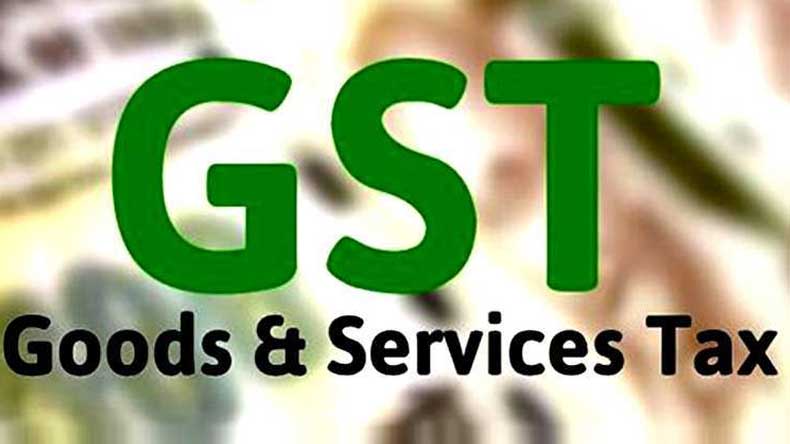One of the complex taxation structure Goods and Service Tax (GST) Regime will come into force from 1st July. Due to some complexities or problems in the new regime, the government itself is not confident enough how things will work out. Coming to the practical effects showed up in the market there are some industries adversely affected by the implementation of GST Regime.
Impact on Supply Chain of Auto Parts
CEO of a tier-2 supplier to Tata Motors said, “There is no major change of our parts supply to OEMs. However, some of the OEMs want to make invoices until June 25 only due to concerns over credit as a consequence of the transition to GST.”
“Our stock movements will be based on OEMs’ requirements and we are not seeing any major signs of a slowdown in stock movements due to GST transitional reasons,” said a senior official at a tier-1 supplier to OEMs.
Last month, the GST Council has increased the limit of input tax credit from proposed 40 percent to 60 percent. Still, some suppliers or dealers are in confusion whether they are entitled to avail input tax credit for the inventory they are retaining.
Top officials of a leading car manufacturer and a commercial manufacturer have declared that automobile manufacturer companies and its supply chain were ready for the GST implementation and mentioned that there are no changes from the side of part manufacturers due to the GST scheme.
Slow Processing Due to GST
The reason of dropped primary sales has tickled the packaging industry to take some slow move towards the manufacturing and production process.
All dealers and distributors across industries are trying to clear their available stock before the new GST Regime and wants to start fresh sale from 1 July.
Along with the announcement of GST rates the GST Council has restricted dealers or distributors for purchasing stock from companies.
However, retailers or dealers of consumer durable industry are providing discounts, promotional schemes and offer for clearing their available stock. Similar offers or discounts are also offered by branded apparels and automobile manufacturers. After rolling out GST Regime packaging industries expect that there will be slow down in primary sales.
Vimal Kedia, MD, Manjushree Technopack, “We anticipate a slowdown in manufacturing from June 20 as companies prepare for GST rollout. We believe once the dust settles, we will see a pick up again from the first-second week of July.”
RK Jain, President (Corporate Finance and Accounts), Uflex, said that for new GST Regime the larger companies had already started working on inventory management and production.
Large volume industries such cement and paper are moving slowly ahead for the new GST Regime.
Another issue arises from the small business units which are sprouted from the traditional practices mainly dealing in cash. The business units are afraid of uncertainties and possible losses in the compensation within the transition from VAT and other excise duties towards the GST scheme.
Traders are trying to maintain low inventories to avoid confusion when the GST roll-out.
Stocking Comes to Halt
While talking about the paper industry, printers are going down on paper purchases. The Paper industry is trying to familiarize with the new systems and procedures. Paper typically changes hands a couple of times, filing taxes online and claiming input tax credit are the concerned areas in new GST Regime. Small traders face issues who deals transaction primarily in cash so far.
The large paper mills are systematically organised whereas the smaller mills have an issue.
A famous paper trader said in transportation in terms of VAT and excise regime, Traders are entitled to avail input tax credit for just 60 per cent of excise paid. The trader added that “Supply chain is choked as nobody is taking stocks in the last 15 days.”
The large dealers who have been carrying 500 tonnes in a normal routine are now carrying a little over 300 tonnes in order to keep away from extra stocks. A lot of dealers with lorry ranging in between 70 thousand paper price will be covered under the new tax scheme.
A senior executive of a cement company said that dealers prefer “to finish the account this month”. Interstate supplies and inter-state supplies can be a complexed in new GST Regime. Small traders or dealers who had earlier shown in cash are worrying about the new systems and processes.
Read Also: Quick Preparations for Small Business Owners Ahead of GST India
Big Dealer Avoids Stocking
A trader in Khanna new grain market, Inderjit Singh said that “Confusion over GST rates has kept big buyers away from the market,”. Demand will shoot- up only when the buyers come from outside and it will also increase the prices.
Fertilizers Also Under Scanner
The fertilizer sector is worrying about the new taxation regime, 12 percent proposed rate would influence the sales.
Currently, in Tamil Nadu and Kerala, there are no tax levies on fertilizers whereas 5 percent in Andhra Pradesh and 5.5 per cent in Karnataka.
The requirement of a fingerprint, Aadhaar and PoS and so on would negatively affect the sales of fertilizers just because a large number of farmers are not well- educated and semi-literate.
Right now there is a season of monsoon in Kerala which will gradually increase the sale of Factamfos and will take some more weeks to reach the peak sale. By that time, the monsoon will arrive in Andhra Pradesh and Karnataka. It is expected that the fertilizer sector will sell 70,000 tonnes in the month of June and the company holds a stock of 65,000 and 8,200 tonnes of Factamfos and Ammonium Sulphate respectively as of June 1.
While concerning over the rubber prices it may fall as senior officials added that the fall in prices of rubber will have an adverse effect on fertilizer sales in Kerala.
